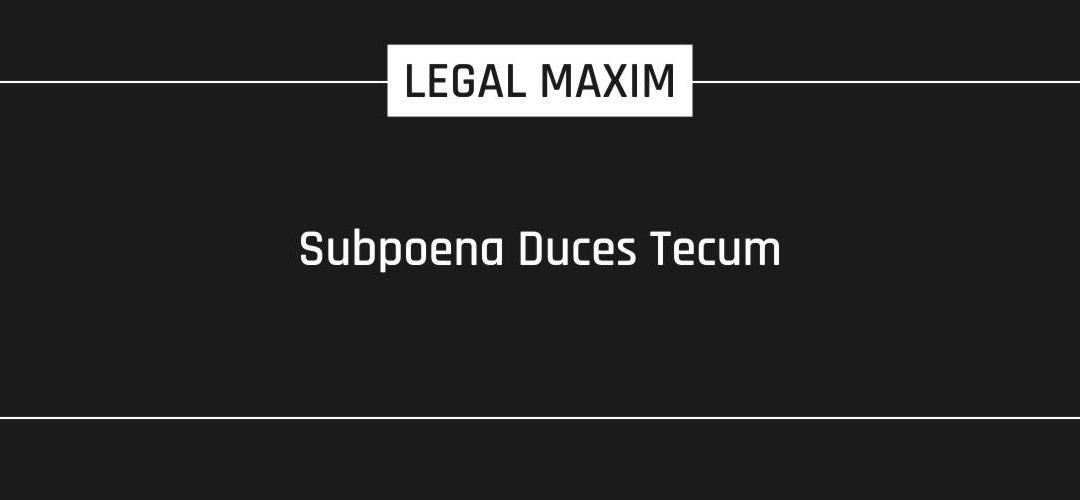Literal Meaning
You shall bring with you.
Origin
Latin
Explanation
It is a writ commanding a person to produce in court certain designated documents or evidence. It is generally called a subpoena duces tecum, which the court commands a person to whom it is directed to bring with him/her some material facts which might include writings, papers, or other things therein specified and described, to a deposition, to counsel for litigants in an action, or before the court. It includes all relevant papers in the possession of the witness must be produced, but to this general rule, there are exceptions.
“Subpoena duces tecum – subpoena for the production of evidence”
The maxim requires the party to produce the necessary evidence or documents to an attorney or the courthouse before proceedings begin. Failure to comply with such an order of the court, to appear may be punishable as contempt. It may include documents like:
- Medical records
- Ownership deeds
- Computer files
- Contracts
- Books
- Bank statements
- Accounting records
Case Laws
In James Mackintosh And Company vs The Scindia Steam Navigation Co., the Bombay High Court referring to the maxim ‘Subpoena Duces tecum’ held that there is not a word about the compulsory summoning of witnesses: nor a word about commissions: and that this is in direct contrast with Section 7 of the Second Schedule to the Civil Procedure Code. Further, the Indian Arbitration Act is largely a copy of the English Arbitration Act, Section 8 of which provides that “Any party to submission may sue out a writ of subpoena ad testificandum, or a writ of subpoena duces tecum.” No such provision for the issue of subpoenas by this Court in a private arbitration is provided in the Indian Act.
In Martin Burn Ltd. vs Bhagirath Murarka, the Calcutta High Court referred to the above maxim and held that We admit the letter as a piece of additional evidence and also to examine the documents and books of account relating to this company as admissible evidence before us and as documents necessary for pronouncing judgment in this case. It is recorded that the said company had been subpoenaed to produce such original document and under such subpoena, the said company had produced such documents in court today.
